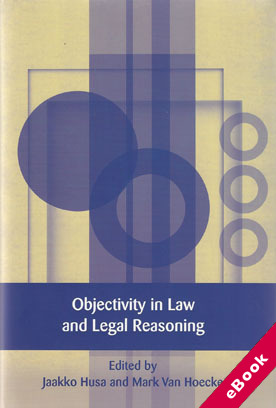
The device(s) you use to access the eBook content must be authorized with an Adobe ID before you download the product otherwise it will fail to register correctly.
For further information see https://www.wildy.com/ebook-formats
Once the order is confirmed an automated e-mail will be sent to you to allow you to download the eBook.
All eBooks are supplied firm sale and cannot be returned. If you believe there is a fault with your eBook then contact us on ebooks@wildy.com and we will help in resolving the issue. This does not affect your statutory rights.
Legal theorists consider their discipline as an objective endeavour in line with other fields of science. Objectivity in science is generally regarded as a fundamental condition, informing how science should be practiced and how truths may be found.
Objective scientists venture to uncover empirical truths about the world and ought to eliminate personal biases, prior commitments and emotional involvement. However, legal theorists are inevitably bound up with a given legal culture. Consequently, their scholarly work derives at least in part from this environment and their subtle interaction with it.
This book questions critically, in novel ways and from various perspectives, the possibilities of objectivity of legal theory in the 21st century. It transpires that legal theory is unavoidably confronted with varying conceptions of law, underlying ideologies, approaches to legal method, argumentation and discourse etc., which limit the possibilities of 'objectivity' in law and in legal reasoning. The authors of this book reveal some of these underlying notions and discuss their consequences for legal theory.